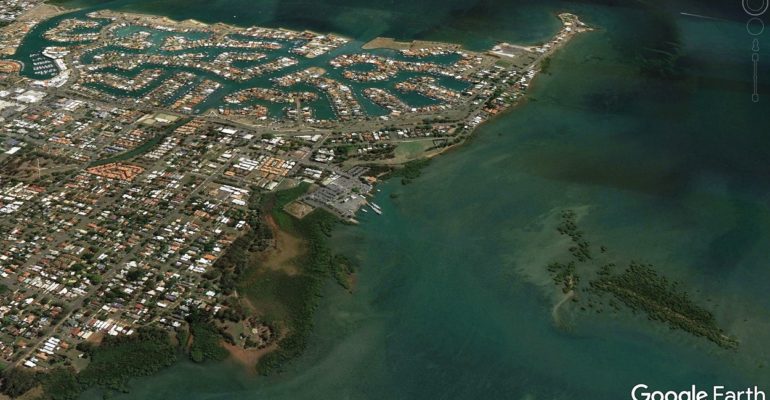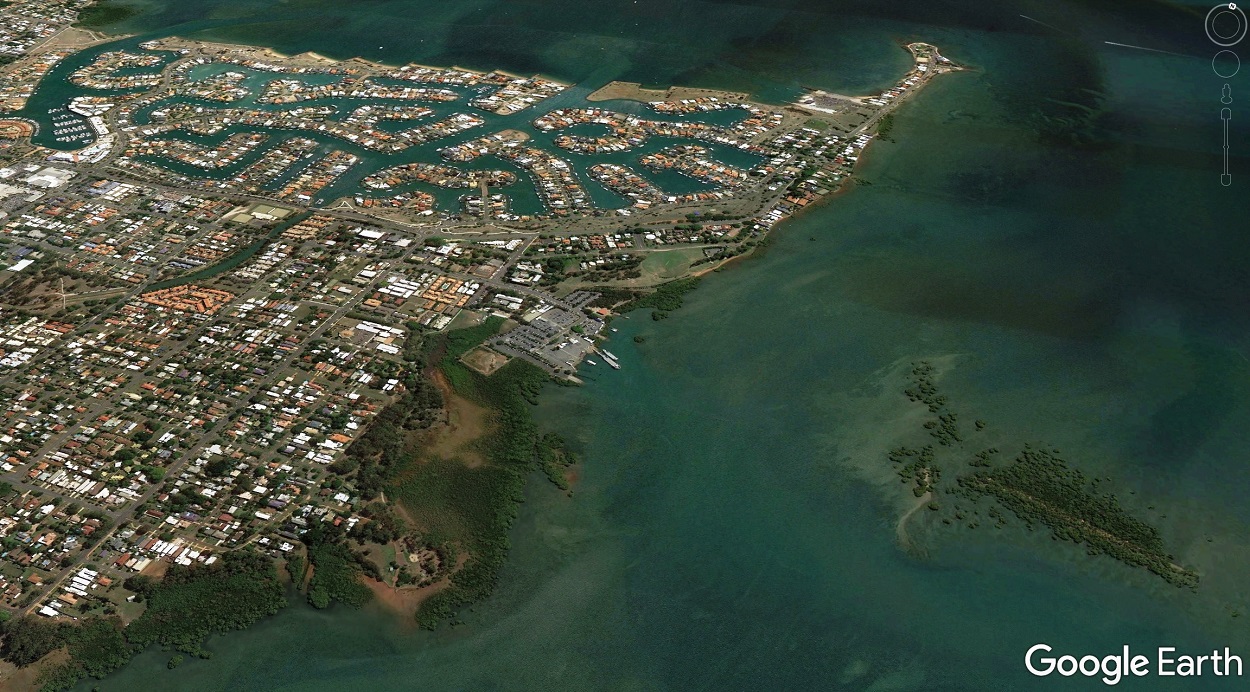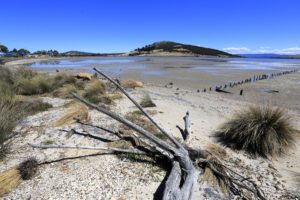

Environmental impacts of development between Toondah Harbour and Cassim Island require Federal approval.
The developer proposing to construct 3,600 apartments on dredged and reclaimed Ramsar wetlands next to Toondah Harbour has disclosed three environmental offences and a lack of environmental policies in its project referral recently submitted to the Federal Government.
Walker Group Holdings submitted this information as a requirement of Federal environment laws set out in the Environmental Protection and Biodiversity Conservation (EPBC) Act.
No environmental policies or planning framework
When corporations refer projects to the Federal Government under the EPBC Act they are asked to provide details of their environmental policy and planning framework.
In responding to this question, Walker Group Holdings Pty Ltd failed to provide any details of any policies or plans. All they said was:
Walker Group Holdings Pty Ltd is not a publicly listed company and therefore there are no statutory requirements for it to have a formal environmental policy. However, in recognising the value of the surrounding natural environment, Walker is committed to ensuring the proposal is sustainable. All works will be controlled by conditions of consent associated with approvals issued under Federal and State environmental law.
This minimal response basically says that their environmental policies and planning framework is to comply with applicable laws.
So how law abiding (and competent) is the Walker Group?
Walker Group’s disclosure of environmental offences
If a developer is proposing to do work that might impact on matters of national environment significance, the Federal Government wants to know about details of any past or present proceedings under a Commonwealth, State or Territory law for the protection of the environment or the conservation and sustainable use of natural resources.
Walker Group’s Toondah referral discloses three matters where a subsidiary or related entity broke environmental laws.
Kew Development Corporation Pty Ltd
Walker Group’s EPBC referral states:
In 2007 Kew Development Corporation (a Walker subsidiary) pleaded guilty to excavating within a Tree Preservation Zone at its Kew Cottages site in Melbourne resulting in the damage to the root of a tree.
A Sydney Morning Herald report included the following statements:
Incompetence by the company re-developing the former Kew Cottages site has cost it more than $150,000 after five heritage-listed trees were endangered during works.
Magistrate Roger Franich yesterday fined Kew Development Corporation Pty Ltd $50,000, and described as a “pretty ordinary mistake” its breaches of a Heritage Victoria permit to develop the controversial site.
Mr Franich said the offence reeked of incompetence, but did not impose a conviction.
Clearing of native vegetation at Picton Road, Wilton NSW
Walker Group’s EPBC referral states:
Walker [Corporation] was found guilty of clearing native vegetation without development consent on land at Picton Road, Wilton NSW on 14 May 2010.
The Sydney Morning Herald reported:
One of the country’s biggest property developers has been fined $200,000 by the NSW Land and Environment Court for unlawfully clearing 23 hectares of native vegetation. Walker Corporation, which has more than $4 billion of developments under way across Australia, was given a record fine for a company under the Native Vegetation Act for clearing the land at a property near Wilton, south-west of Sydney, in 2006 and 2007.
Walker Corporation then appealed both its conviction and its sentence to the NSW Court of Criminal Appeal. The appeal was dismissed on 26 September 2012 (Environmental Law Reporter, Vol. 32, No. 13-014/13-021, 12 Apr 2013: 2-3).
Clearing of native vegetation at Appin
Walker Group’s EPBC referral states:
Walker [Corporation] was found guilty of clearing native vegetation without development consent on land at Macquariedale Road, Appin NSW on 30 November 2011.
The Macarthur Advertiser reported that Walker Corporation arranged in 2006 for seven hectares of land containing more than 70 species of native vegetation, including white stringy bark and forest red gum to be cleared. The Advertiser’s report includes the following statements:
The NSW Land and Environment Court has fined a property developer $80,000 for clearing native vegetation without approval in Appin.
Justice Preston found that although the areas cleared were relatively small compared to the site’s overall native vegetation, they included endangered ecological communities that were over-cleared and unable to withstand further loss.
The Walker Corporation was also ordered to pay the legal costs of the Office of Environment and Heritage.
Walker’s lack of experience working under the EPBC Act

Ralphs Bay in Tasmania where Walker Group’s development plans were refused EPBC approval
Walker Group claims in its latest EPBC referral to have “developed more than 1,000 projects in all states and territories and in all property sectors over a period spanning 50 years.”
But none of these projects have required Federal Government control under the EPBC Act because of impacts on matters of national environmental significance.
One project similar to the proposed development at Toondah Harbour was refused EPBC approval by the Federal Government.
It involved plans to construct and operate a residential and marina development in in Ralphs Bay, Lauderdale (near Hobart in Tasmania).
Community concerns about the Toondah project
A number of community and environmental groups (including Redlands2030) are opposed to the Toondah project in the form proposed by Walker Group.
Comments about Walker Corporation’s Toondah project EPBC referral can be provided to the Federal Government no later than 25 May 2017.
Two groups have made it easier to submit comments opposing the project:
Redlands2030 will also be publishing comments on the Walker Corporation Toondah referral.
Redlands2030 – 19 May 2017
Please note: Offensive or off-topic comments will be deleted. If offended by any published comment please email thereporter@redlands2030.net
So was the fine the only penalty? Was the Walker Group not required to rehabilitate the cleared land? I mean if one clears vegetation illegally and then gets fined for it, it may well be a way to get what you want and flout the environmental laws. It sure would be an effective way to get around some of the environmental restrictions on a development.
On the other hand, if the company was required to rehabilitate the area, then they would not be able to use the land in their development in the way that they planned, and so it would be a terrific incentive not to clear land without the appropriate permits or authority to do so.
As we’ve been saying, “STOP THE RORT, JUST FIX THE PORT”.
You have to ask why is it Council gave this the tick knowing the environmental vandalism history of Walker Group? The Redland City Bulletin (RCB) put a wrap out with the heading “Cleveland All Grown Up” which I suspect was signed off by our council media arm as it mentioned nothing of the doubling of Cleveland’s population, extra 7,000 cars through Cleveland, loss of migrating birds, 20 years of construction, paving the harbour and a lot more. I wrote to RCB telling them they had missed all this and only portrayed what suited Walker including the artists drawings which didn’t show 3,600 units and traffic congestion. They never replied of course. They never do.